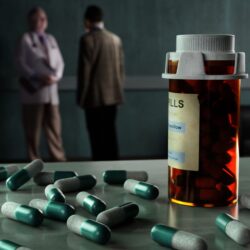Clinical Researcher—June 2020 (Volume 34, Issue 6)
FORM & FUNCTION
Gary W. Cramer
We’ve tackled the topic before in the ACRP Blog of how the repurposing of existing drugs (whether available on the market or long unused in some pharmaceutical company’s vault) may offer hope for treatments for conditions other than those for which they were originally studied and/or commercialized. Suddenly this concept is in vogue again to a degree perhaps never before seen, as the COVID-19 pandemic has researchers scrambling to find effective treatments for combatting the SARS-CoV-2 virus and relieving any of the range of serious symptoms it has proven to bring with it in different populations.
Presented here are excerpts from a variety of press announcements regarding expert perspectives on repurposing, and some of the drug research efforts currently under way in the midst of this global health crisis:
Repurposing Existing Drugs for COVID-19 a More Rapid Alternative to a Vaccine
Repurposing existing medicines focused on known drug targets is likely to offer a more rapid hope of tackling COVID-19 than developing and manufacturing a vaccine, argue an international team of scientists in a review in the British Journal of Pharmacology.
Researchers representing the International Union of Basic and Clinical Pharmacology say there will be no “magic bullet” to treat the disease, and argue that a multipronged approach is needed to find new drugs. They caution that an effective and scalable vaccine is likely to take over a year before it can used to tackle the global pandemic.
“Any drug to treat COVID-19 will need to focus on the three key stages of infection: preventing the virus entering our cells in the first place, stopping it replicating if it gets inside the cells, and reducing the damage that occurs to our tissues, in this case, the lungs and heart,” said Professor Anthony Davenport from the University of Cambridge, one of the authors of the review. “[We know that two specific] proteins play a role in this coronavirus infection, [so] we can focus on repurposing drugs that already have regulatory approval or are in the late stages of clinical trials. These treatments will have already been shown to be safe and so, if they can now be shown to be effective in COVID-19, they could be brought to clinical use relatively quickly.”
One promising candidate is remdesivir, a drug originally developed for Ebola. Although clinical trials found it to be insufficiently effective at treating Ebola, studies in the U.S. have suggested the drug may be beneficial for treating patients hospitalized with COVID-19, and the U.S. Food and Drug Administration (FDA) has approved it for emergency use.
The review authors say that we need to move quickly to identify existing drugs that are effective in clinical trials so that we can begin treating patients as rapidly as possible, but also because cases are likely to fall during the summer—meaning there will be fewer people who can be recruited to clinical trials ahead of an anticipated second wave of the disease in autumn. They estimate there are currently more than 300 clinical trials taking place worldwide, though many of these investigational drugs are unlikely to be effective for widespread use, because either it is not clear which part of the disease pathway they are targeting or they cause unpleasant side effects.
Source: Newswise
Scientists Discover 59 Repurposing Drug Candidates for Sepsis in COVID-19 Cases
Scientists from UK-headquartered artificial intelligence precision medicine group PrecisionLife have identified 59 repurposing drug candidates that could be used to develop new therapeutic strategies to boosts survival rates for patients who develop sepsis while suffering from severe COVID-19. Sepsis is observed in 60% of severe COVID-19 patients and has a mortality rate of approximately 20%. The team identified mutations in 70 sepsis risk genes, 61% of which were also present specifically in severe COVID-19 patients, and 13 of which are known to be druggable. The study has also identified 59 compounds and drugs known to be active against these 13 targets.
Source: PharmaTimes
New Database Focuses on Repurposing Drugs for COVID-19
Excelera, a data and analytics company, has released a COVID-19 Drug Repurposing Database, which presents a compilation of previously approved small molecules and biologics with known preclinical, pharmacokinetic, pharmacodynamic, and toxicity profiles that can rapidly enter either Phase II or II clinical trials on a fast-track basis for COVID-19. In addition, the database includes information on promising drug candidates that are in various clinical, preclinical, and experimental stages of drug discovery and development for COVID-19.
Source: BioSpace.com
Repurposing Drugs Might Help Fight Coronavirus Pandemic
In just a few weeks, Nevan Krogan, a molecular biologist at the University of California, San Francisco, and his collaborators managed to do what typically takes years: they purified 26 of the coronavirus’s 29 proteins, identified the human proteins that they latched onto, and suggested existing drugs that made good candidates for treating the disease—69 of which were already FDA-approved or in clinical trials. They reasoned that repurposing existing medications might be faster than developing a new drug.
Krogan’s team is not alone. The World Health Organization (WHO) is beginning its own global trial, called Solidarity, to investigate which older drugs can treat this new disease. Potential therapies include those currently used to treat HIV, malaria, Ebola, and inflammation.
Source: Technology Review
Researchers Call for Rapid Drug Repurposing to Fight COVID-19
Filling the therapeutic gap for coronavirus treatments with existing drugs approved for other uses could greatly benefit patients around the world. Researchers from the University of Kentucky urged the scientific community to quickly identify drugs that may be repurposed in the fight against COVID-19 in an opinion piece published May 8 in Science.
The authors called on researchers, ethics boards, and regulators to coordinate rapid hypothesis-generating studies now, during the first peak, which will justify a smaller number of larger trials in later peaks.
The authors cited two existing treatments with the potential to reduce viral entry of SARS-CoV-2. The first is recombinant human angiotensin-converting enzyme 2 (rhACE2, or APN01), originally under development for acute lung injury and pulmonary arterial hypertension, but currently being investigated for viral blockage in COVID-19 patients. The second is a transmembrane protease serine 2 (TMPRSS2) inhibitor, camostat, which is approved in Japan for the treatment of chronic pancreatitis and postoperative gastric reflux. The drug can block viral entry by inhibiting proteolytic processing of the spike protein. Clinical trials of camostat and the related agent nafamostat for COVID-19 have already started in the Netherlands and Germany.
Source: The Science Advisory Board
Company to Develop Potential COVID-19 Treatment in Collaboration with NCATS
Acer Therapeutics Inc. announced it has entered into a research collaboration agreement with the National Center for Advancing Translational Sciences (NCATS), one of the National Institutes of Health, to develop emetine hydrochloride as a potential treatment for patients with COVID-19. Acer is working toward an Investigational New Drug submission in mid-2020 and targeting clinical trial initiation in the third quarter of 2020, subject to additional capital.
Emetine is a drug used as both an anti-protozoal and to induce vomiting. The company has proposed an adaptive design Phase II/III randomized, blinded, placebo-controlled, multicenter trial to evaluate the safety and antiviral activity of emetine in high-risk, symptomatic adult patients with confirmed COVID-19 infection not requiring hospitalization. The trial objectives as planned are to determine the safety and efficacy of emetine via clinical status at a specific timepoint in addition to disease resolution.
Source: Acer Therapeutics
Arthritis Drug May Improve Respiratory Function in Severe COVID-19 Cases
A small study in Greece has found that the clinically approved anti-inflammatory drug anakinra, used to treat rheumatoid arthritis, improved respiratory function in patients with severe COVID-19. The eight patients also had a condition called secondary hemophagocytic lymphohistiocytosis (sHLH), which is characterized by overactivation of the immune system and organ failure. One patient, who did not require mechanical ventilation, improved rapidly after starting treatment with the drug and was discharged from the hospital nine days later. However, the therapy did not prevent three out of seven patients on ventilators from dying, and it’s not yet clear whether it improves mortality rates. The report appeared in the journal Cell Host & Microbe from authors with the Medical School of the National and Kapodistrian University of Athens.
Source: Newswise
UCLA Launches Clinical Trial to Help Reduce Severity of COVID-19 Illness in Men
UCLA researchers have launched a new clinical trial that uses a hormone suppresser commonly used to treat men with prostate cancer to help improve clinical outcomes for men infected with COVID-19. The Phase II trial will assess if temporarily suppressing male hormones will reduce the severity of COVID-19 illness by helping patients get out of the hospital faster, decrease the need for intubation, and improve mortality. The study is being conducted at the Veterans Affairs Greater Los Angeles Healthcare System and other VA sites across the country.
“It’s becoming pretty clear that men are more likely than women to die from COVID-19, and we think there is a connection between prostate cancer research and our understanding of COVID-19 research,” said principal investigator Matthew Rettig, MD, professor of medicine and urology at the David Geffen School of Medicine at UCLA and member of the UCLA Jonsson Comprehensive Cancer Center.
In the trial, researchers will suppress male hormones using the FDA-approved medication known as degarelix to temporarily shut down the production of TMPRSS2 and block the virus from entering lung tissue.
Source: Newswise

Gary W. Cramer (gcramer@acrpnet.org) is Managing Editor for ACRP.



